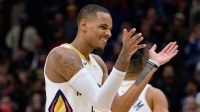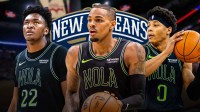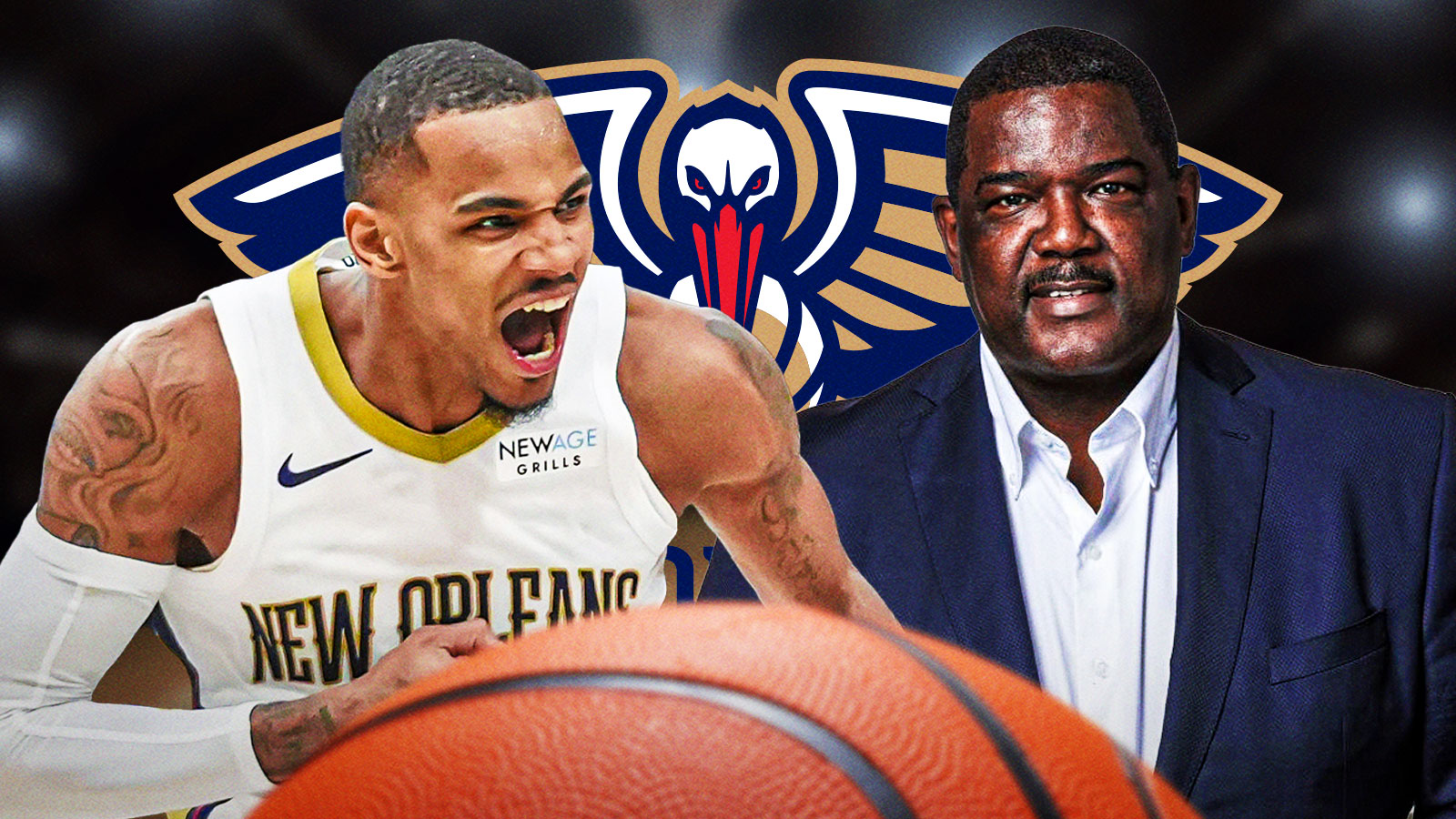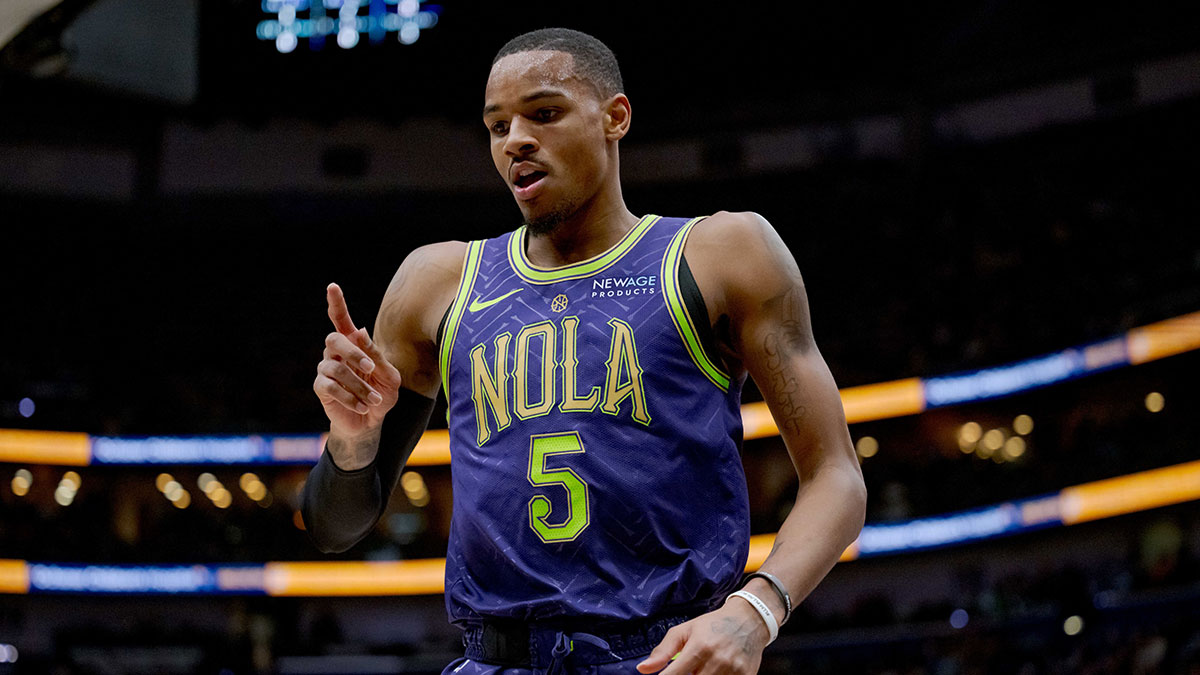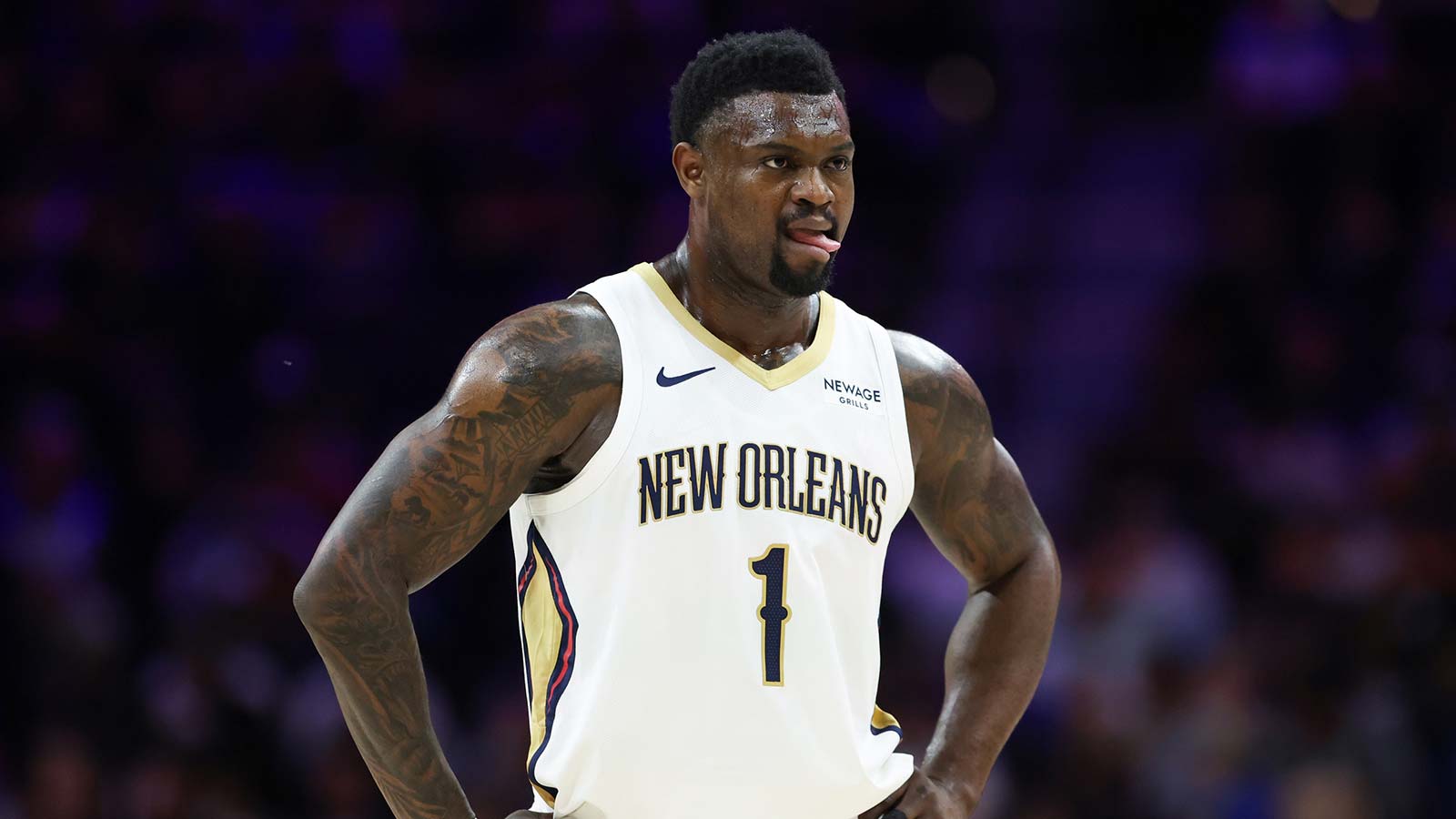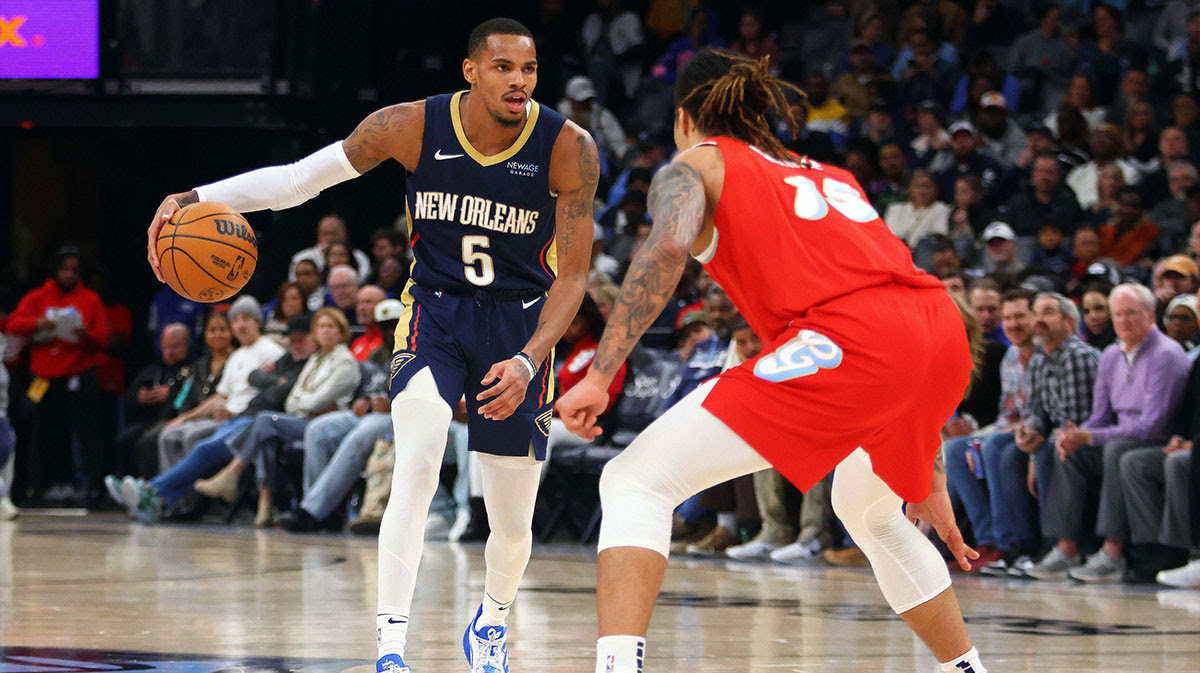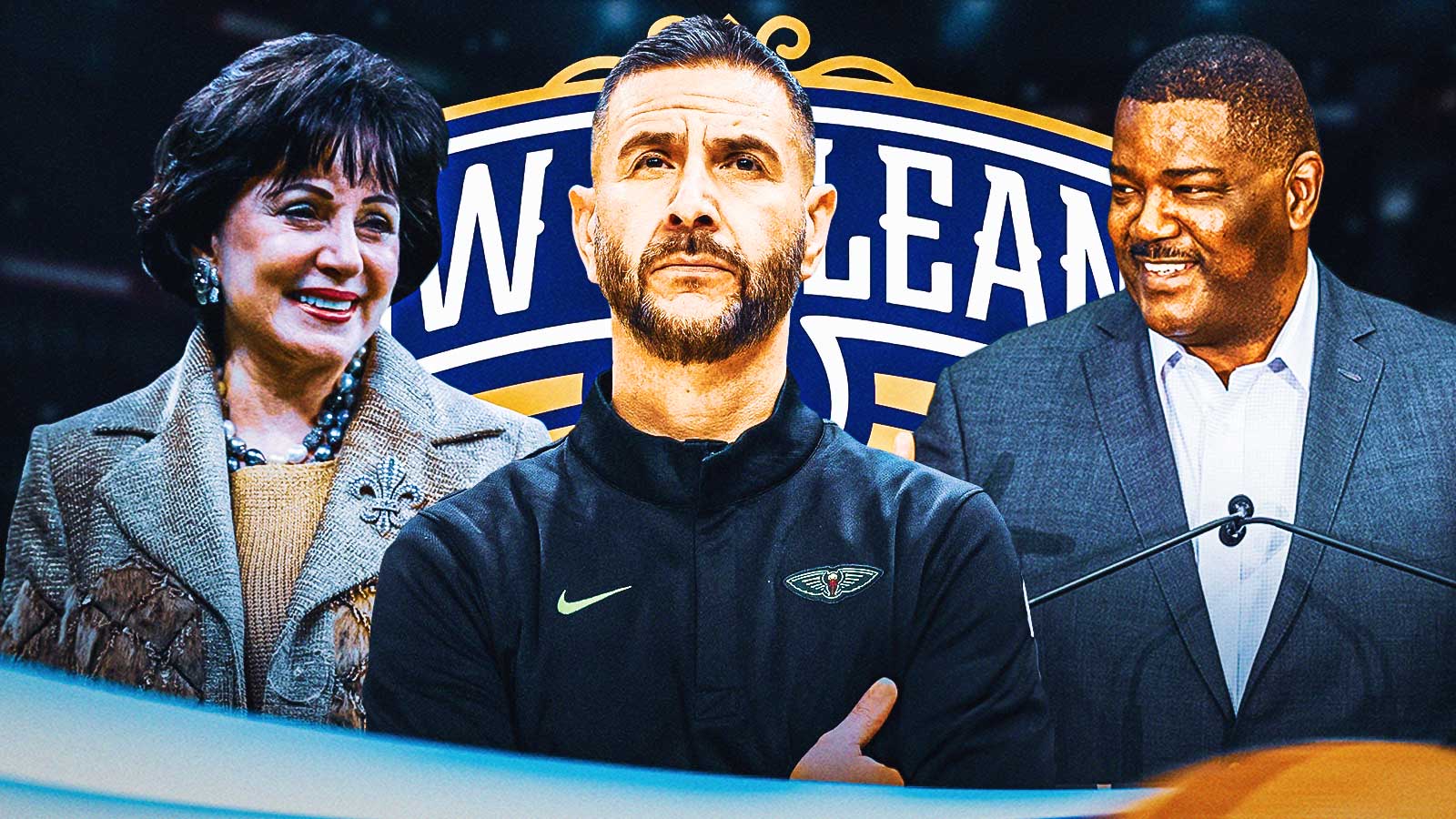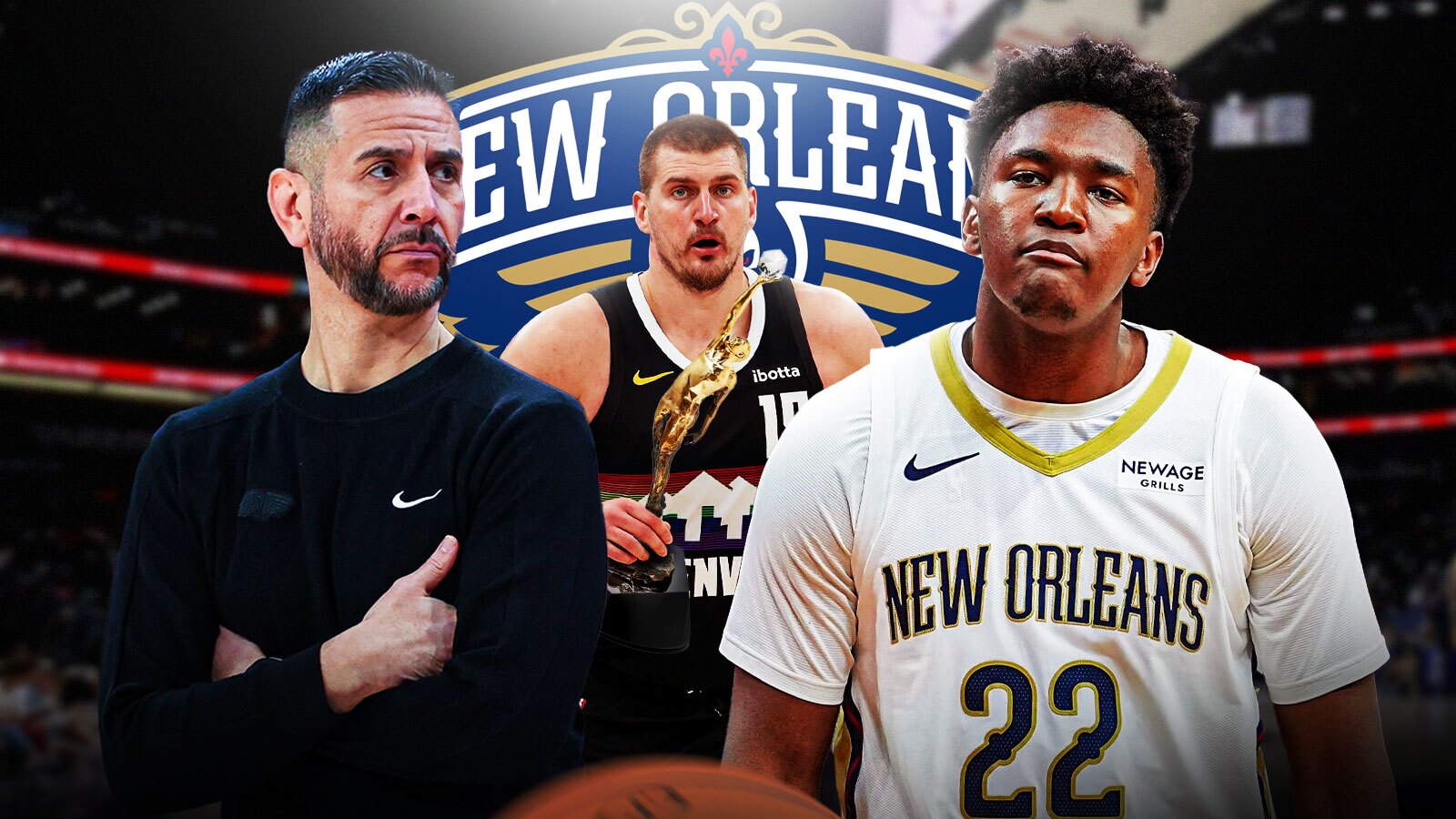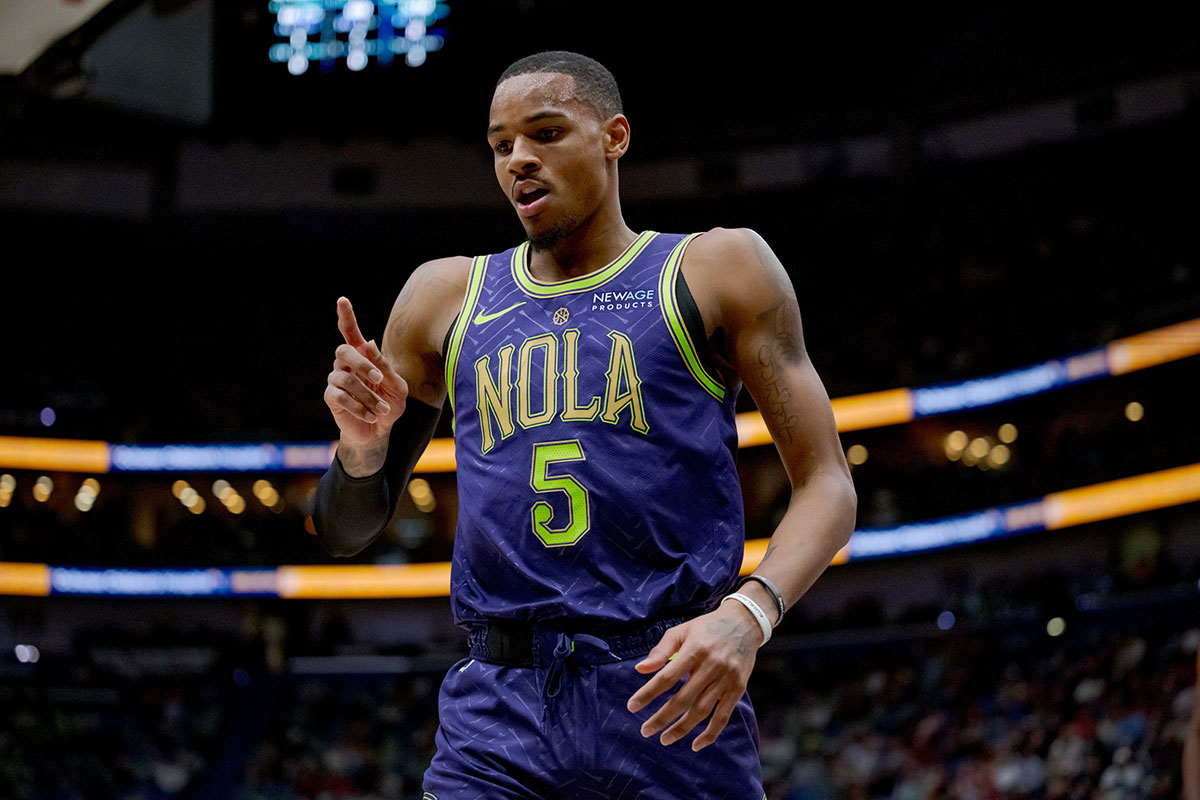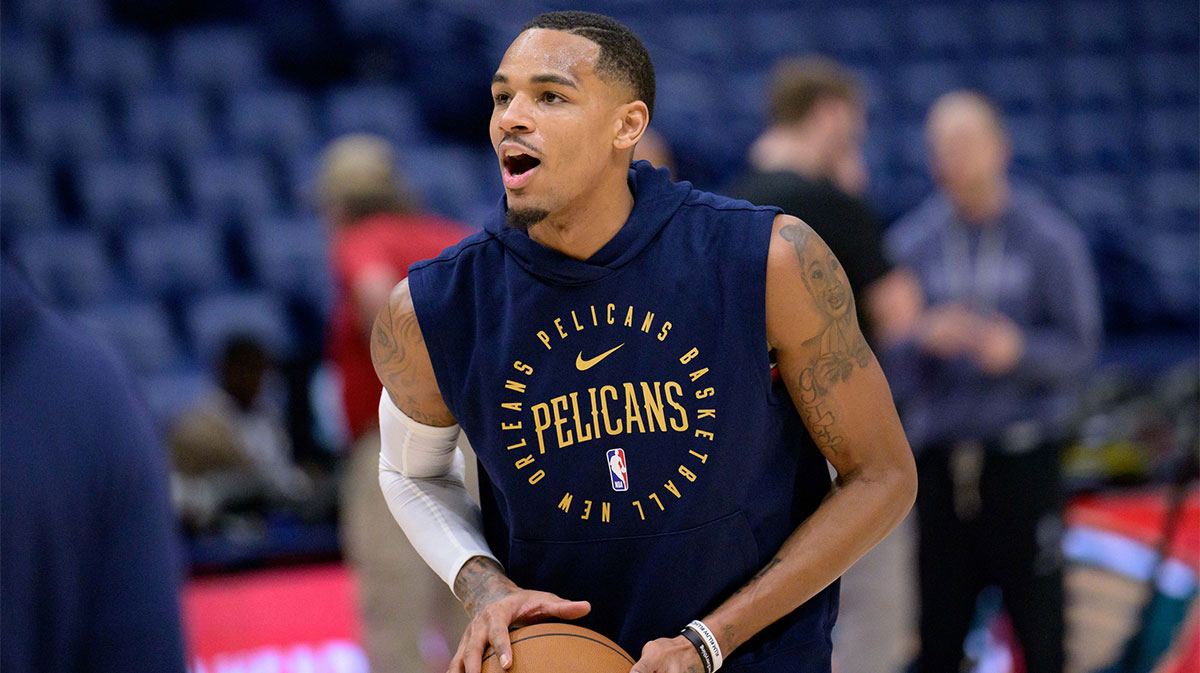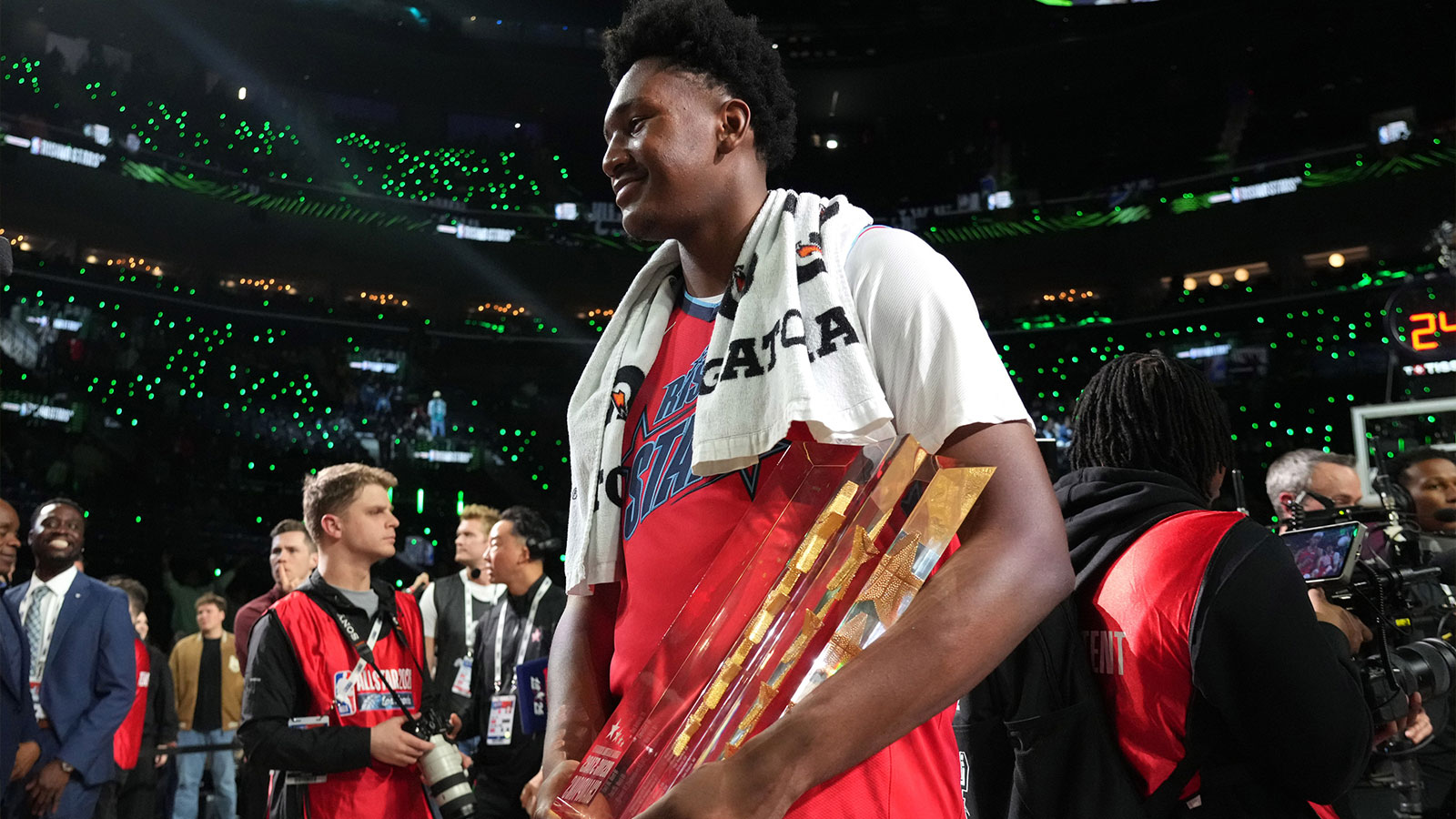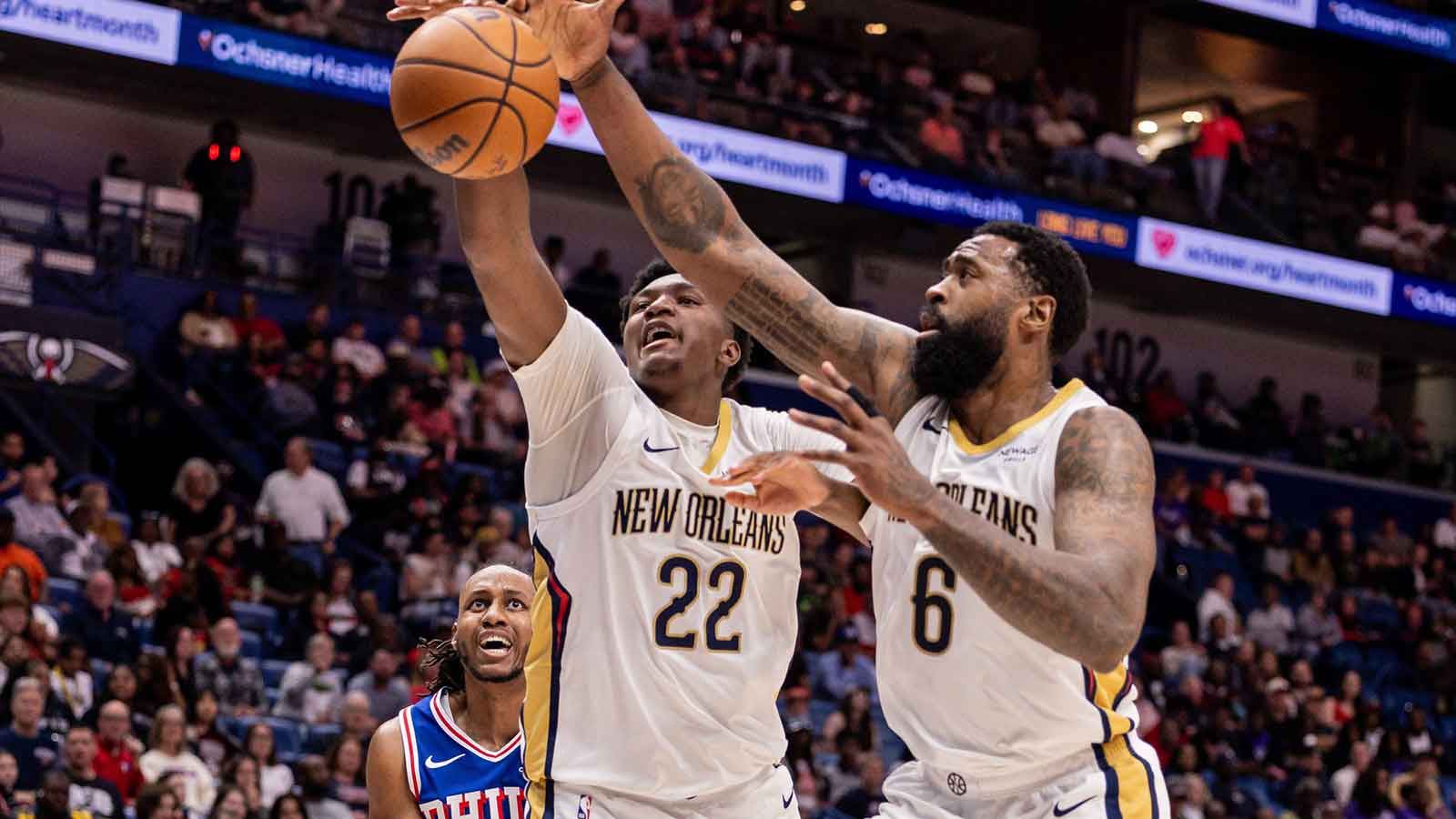Hope has flickered like a faulty scoreboard for far too long in the Smoothie King Center, so the New Orleans Pelicans made a not-so-bold pivot to James Borrego. Joe Dumars had little choice after being given the green light by team governor Gayle Benson. A decision to fire Willie Green did not hinge on a Zion Williamson-dependent roster or personal coaching talent deficiencies. The front office made the change to Borrego because, despite the injury-laden explanations and three years of trust from ownership, the vibe was gone. Jose Alvarado, Derik Queen, and Herb Jones could only do so much.
Borrego’s tenure began with back-to-back dates against the defending champion Oklahoma City Thunder and the still-dangerous Golden State Warriors. Hardly a fair starting point. But even in those losses, something felt different. The ball moved. The pace sped up. Players talked more in the huddle. There was life again. Something changed; maybe it was the new voice or the same old desperation. Either way, the Pelicans showed signs of life. The locker room door swings open differently now in New Orleans. There's a palpable shift in energy, a reset of expectations, a flicker of something absent for a while.
That spark alone won't solve everything, especially on the scoreboard that matters most. For that feeling to last, Borrego must immediately address five critical issues to salvage a season hampered by injury, fan frustrations, coaching turmoil, and an underperformance that does not do the city justice.
Solving the starting lineup puzzle
Borrego's first major decision was his smartest: starting Derik Queen. The rookie didn't just earn it but demanded it. Troy Weaver raised eyebrows when he surrendered an unprotected 2026 first-round pick to secure Queen, the kind of asset-stripping move that gets general managers fired if it doesn't work. But Queen looks like a Rookie of the Year frontrunner and a future All-Star. From the fans to the front office, New Orleans hasn't fallen this hard for a rookie since Chris Paul arrived two decades ago.
The Queen coronation was easy. The real challenge comes when bodies return to health. Zion Williamson should be back before Thanksgiving, bringing his 22.8 points, 6.8 rebounds, and 4.6 assists per game, which should help. Williamson's zero three-point attempts and troubling 3.4 turnovers in 31.5 minutes do not. Dejounte Murray remains sidelined until around Christmas, maybe later. Saddiq Bey's ankle keeps him day-to-day.
Murray's ball-handling would be a boon to rotations starved for stability. Williamson's restricted-area dominance is unmatched, but integrating him without disrupting Queen's rhythm will require finesse. Borrego needs a plan for when everyone's healthy. Who sits? Who accepts reduced minutes? Can Williamson and Queen coexist? These aren't hypotheticals anymore.
Zion Williamson losing value
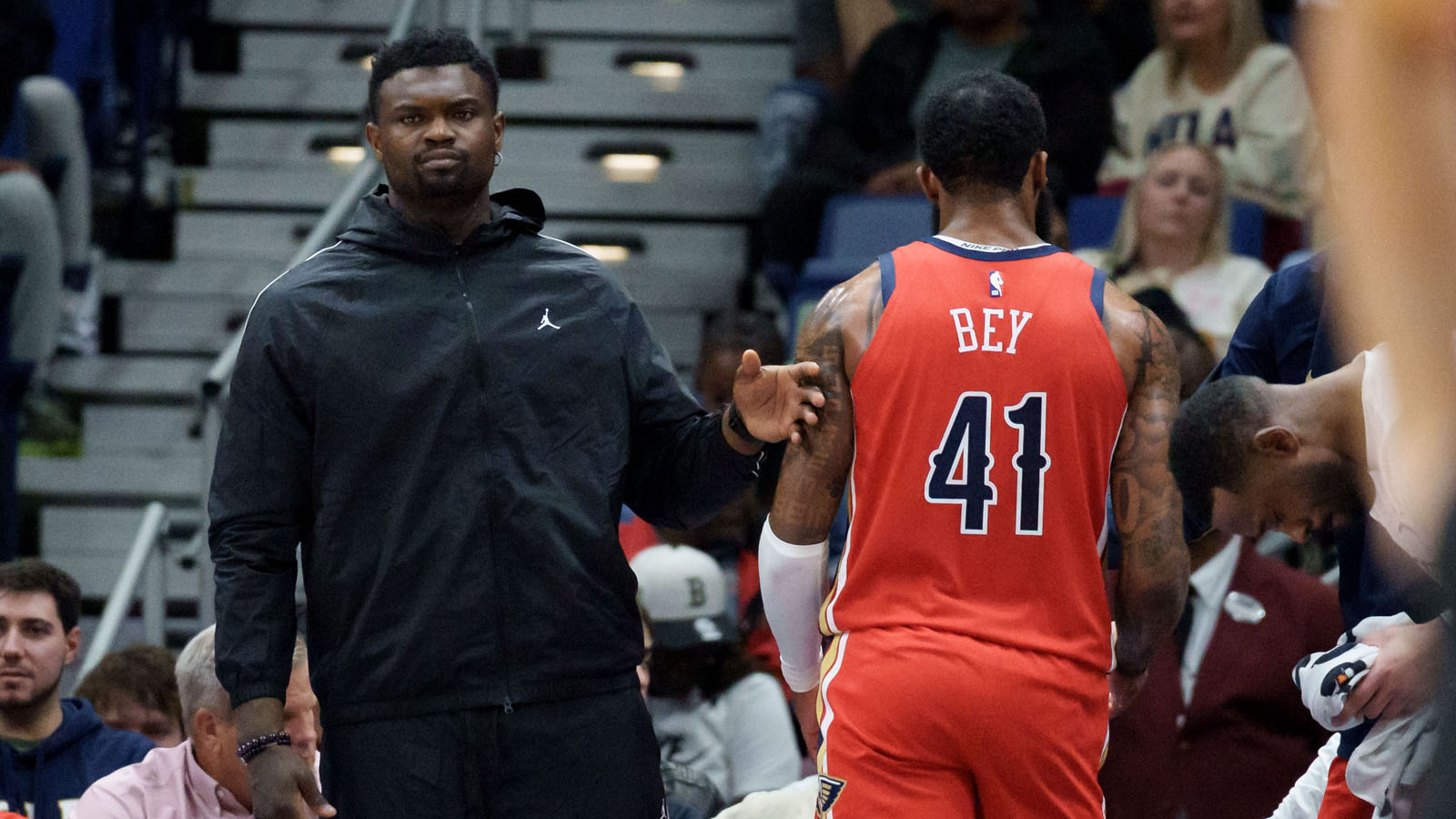
Everyone knows Zion’s upside. But his value is no longer being measured in potential. It’s in availability, and more quietly, in functionality. Five games. That's the sample size for Zion Williamson this season. In those five games, he's looked like the player the Pelicans hoped he'd become: productive across the board with 2.2 combined steals and blocks, still capable of dominance in the restricted area. But he hasn't attempted a single three-pointer and practically guarantees a personal offensive error roughly every 10 minutes.
Building around a player who can't consistently stay on the court and refuses to modernize his offensive game presents an impossible task. His restricted area success rate doesn't matter if defenses can sag off him beyond 15 feet. His playmaking doesn't compensate for the offensive geometry he destroys. Williamson's worth to this franchise has become the central question Borrego must answer, not just in terms of on-court production, but in how the entire system accommodates his limitations.
The cold truth is that New Orleans has looked more cohesive, more functional, more modern without Williamson for long stretches. Trey Murphy III and Brandon Ingram led those postseason runs, for the most part. Queen's emergence has given fans something Williamson no longer provides: hope tied to availability. Borrego's experience as a head coach should help with that max-contract-based balancing act.
Pelicans being boxed out
Borrego’s job is to coax more variety out of Williamson's game without breaking what already works. However, the All-Star's rebounding numbers are slightly inflated thanks to gathering personal misses for second-chance points. Those offensive rebounds matter, but they are isolated events. The Pelicans need to dominate on the glass to give themselves any chance of beating the West's best.
Against the Thunder, the Pelicans had one team rebound in the first quarter. Micah Peavy grabbed the first player credited rebound on ESPN's play-by-play tracker with 39.6 seconds remaining. Rebounding is not just a weakness; it’s an identity failure. New Orleans ranks 26th in team rebounding, a fundamental failure that undermines everything else Borrego tries to implement.
Yves Missi, Saddiq Bey, DeAndre Jordan, Kevon Looney, and Karlo Matkovic all face reduced playing time once healthier bodies return. One of them (likely the worst rebounder) may not see the floor again this season. However, the crisis extends beyond the obvious frontcourt suspects. Herb Jones, the team's best defender, has been a ghost on the glass. He ranks 12th on the team in rebounds per 100 possessions, trailing Jose Alvarado and Jordan Hawkins. That's unacceptable for a wing of his size and motor.
The fix isn't complicated: somebody has to want the basketball more. Schemes help, but rebounding remains about effort and positioning. Right now, the Pelicans have neither. Borrego doesn’t need an All-Star big. He just needs someone to stop the bleeding.
Smoking hot Herb Jones
Herb Jones shot 40% from three-point range in his last full healthy season and carries a 36.6% career mark from beyond the arc. This season, facing constant deficits and offensive droughts, he was pressing early. His shot selection has suffered, forcing attempts that better offensive teams would never need from him.
Thankfully for the Big Easy's NBA Play-In Tournament hopes, Jones is still no slouch on defense either. Against Golden State, Jones conducted a defensive clinic on Stephen Curry. Deploying every baiting, hooking, staying attached through screens trick, Jones deployed the full First-Team All-Defense arsenal. Jones locked down James Harden when the Clippers visited. Luka Doncic and Devin Booker have been dejecting when explaining their Not on Herb experiences.
The defensive prowess hasn't vanished. Borrego must build Jones back into the offense. Allow him early corner looks. Script actions that force defenses to honor him. His value is too high to let him drift. The Pelicans need their best defender to start pulling double-duty again.
Jose Alvarado's final act

Jose Alvarado has been the off-the-bench spark plug the Pelicans always wanted for three years. “Grand Theft Alvarado” is more than a meme; the Puerto Rican national team star is an energizer, grinder, and cult hero.
But he’s also a pending free agent. Alvarado has a player option for next season and, barring injury, will decline it. He’ll seek years and money that New Orleans probably can’t offer. For a team that just surrendered a future unprotected first-round pick to acquire talent, Alvarado represents the rare path to another asset.
Boosting Alvarado's value before the trade deadline, either as a hidden starter or sparkplug sixth man, helps everybody. Every strong performance raises Alvarado's market value. Every game he spends on the bench wastes an opportunity to recoup assets the franchise desperately needs. With Murray eventually returning and the draft pick cupboard bare, Alvarado represents one of the few paths toward replenishing organizational depth.
Borrego inherited a franchise trapped between win-now desperation and rebuild necessity, with a superstar whose body won't cooperate and a salary structure that's become a straitjacket. Still, he chose to take the job, and with it, the responsibility to extract something functional from the chaos. These five fixes won't solve everything (some problems run too deep for any coach to repair mid-season), but they're the minimum required to keep this season from becoming a complete disaster.
Clock's ticking. The Pelicans need to work fast to salvage an otherwise lost season.






